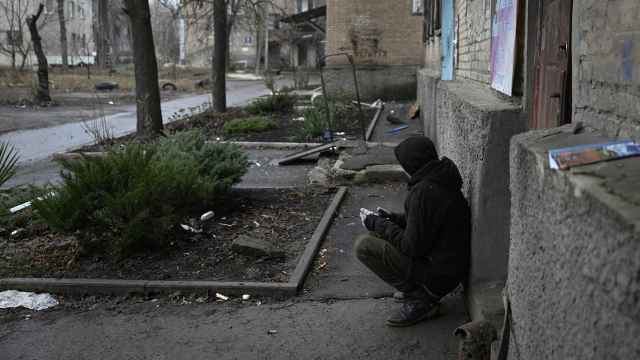Moscow Fires Raise Smog 10 Times Over Safe Level
The worst smog to hit Moscow in almost a decade has sent pollution soaring 10 times above safe levels, an air monitoring service said Wednesday, as firemen reported success extinguishing the peat fires causing the smoke.
A heat wave has engulfed central parts of European Russia since June, pushing temperatures in Moscow to their highest-ever level and sparking forest and peat fires across the country.
Peat fires on the outskirts of Moscow have blanketed the city in its worst smog since 2002. The smoke's sharp, cinder-filled smell has crept into offices, homes and restaurants via windows and doors. (For a photogallery of the smog, click here.)
"The concentration of carbon monoxide and suspended particles in Moscow surged up to 10 times above the limit last night," said Alexei Popikov, chief specialist at Mosekomonitoring, a city government agency overseeing air pollution.
He said the elderly and those suffering from heart disease should try to avoid contact with the smog.
Moscow hit an absolute temperature record Monday with 37.4 degrees Celsius and headed for another high on Wednesday.
Alexei Yablokov, an internationally renowned biologist who runs Russia's Green Party, said Tuesday that air pollution caused by the smog could kill hundreds more people than usual in the Moscow region.
Moscow region Governor Boris Gromov asked Prime Minister Vladimir Putin to allocate 25 billion rubles ($827 million) to fight the fires around Moscow.
RIA-Novosti reported Wednesday that all the fires had been extinguished, but a spokeswoman for the Emergency Situations Ministry said new fires had since erupted.
A ministry statement early Wednesday said 43 fires had been extinguished in the previous 24 hours.
The smog may begin to clear Thursday evening, when an atmospheric front moving over from the west is expected to bring rainshowers to the Moscow region, said Dmitry Kiktev, deputy director of the federal meteorological service.
He said the heat wave will retreat over the weekend, with temperatures falling 4 or 5 C below those registered this week.





